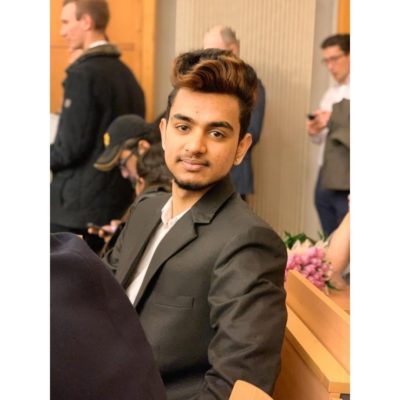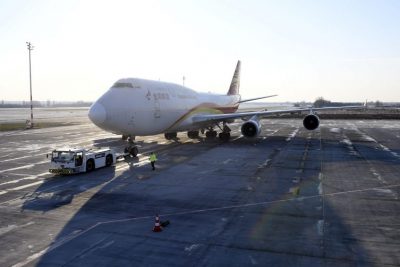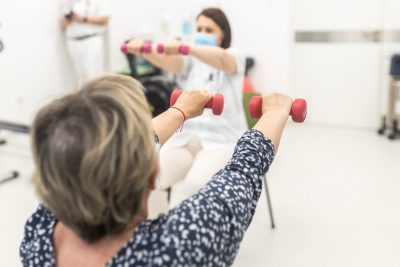Since 20th August, the students of Semmelweis University, including numerous international students, have performed over 23,000 coronavirus tests, thus committing to infection control. Meet Danish Farooqi, a student from India, who shares his experiences studying and volunteering at Semmelweis University in the time of the coronavirus.
 Danish Farooqi comes from India, and he is currently studying physiotherapy at the Faculty of Health Sciences with the help of the Stipendium Hungaricum scholarship. Despite the current epidemiological situation, he loves all aspects of university life; he enjoys the multicultural vibe of the university’s social life and at the same time he appreciates being immersed in a stimulating academic environment. Thanks to the support and inspiration of the distinguished lecturers and fellow students, Danish has decided not to stop at earning a BA degree but to continue with an MA course at Semmelweis University.
Danish Farooqi comes from India, and he is currently studying physiotherapy at the Faculty of Health Sciences with the help of the Stipendium Hungaricum scholarship. Despite the current epidemiological situation, he loves all aspects of university life; he enjoys the multicultural vibe of the university’s social life and at the same time he appreciates being immersed in a stimulating academic environment. Thanks to the support and inspiration of the distinguished lecturers and fellow students, Danish has decided not to stop at earning a BA degree but to continue with an MA course at Semmelweis University.
“When I was about to finish high school, I was already thinking about studying abroad. I did not know, where and how to start so following the recommendation of my uncle, I narrowed down my choices to Hungary. From my background search on Hungarian universities Semmelweis University stood out by being among the top European universities and by being included in several global rankings as well. Stipendium Hungaricum has made it possible for me to make new academic contacts from all around the world and get different perspectives on different fields of science. I would recommend it to anyone, who considers their academic career important and is eager to pursue their studies in a multicultural environment.”, Danish said.
Contrary to many of his international fellow students, he decided not to return to India during the first wave of the coronavirus. Switching to online education so quickly, losing physical contact with friends and getting out of the usual rhythm of going to university was a new and odd experience. He had to get used to staying at home, not being able to use the facilities of the university. However, he soon got over his first bewilderment and decided to make the most of this situation: he started online courses, read scientific literature to get an even more thorough knowledge of his studies. Thanks to his dedication to studying, he finished his exams with great results. To make the most of his time during the epidemic, he also volunteered to help out with PCR testing.
“I saw an ad on the Facebook page of Semmelweis University’s Students’ Union and I immediately decided to sign up. I volunteered, because I believe that being a student of health sciences, it is my duty to serve people and this is the example Semmelweis University has always set.”, he said.
He was stationed at Szent Rókus Clinical Block doing sampling and administrative tasks as well as instructing new volunteers.
“I think this job has given me a lot professionally and psychologically; I have learnt how to communicate effectively, how to work in a team, how to do a procedure right, how to overcome my uneasy state of mind, how to handle workload and stressful conditions. I believe, all these have made me more confident of what I am and how I would like to do my job. Therefore, I will keep on doing PCR sampling until the epidemic subsides.”, Danish said.
Based on his experiences, he would invite fellow students to get involved in volunteer work, because it is the duty of healthcare professionals to serve fellow humans. In addition, early exposure to clinical settings and hands-on experiences can improve time and stress management, and can boost confidence.
Ágnes Raubinek
Photo: Danish Farooqi
Featured image (illustration): Bálint Barta


